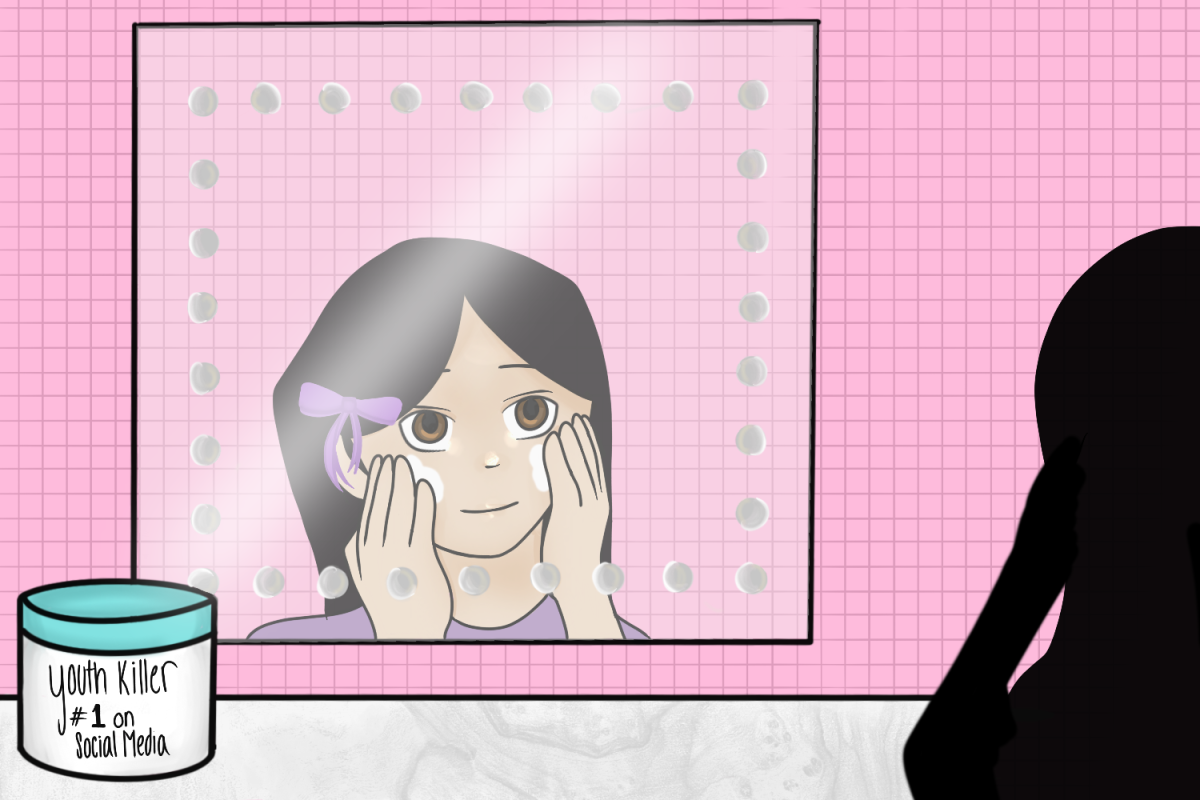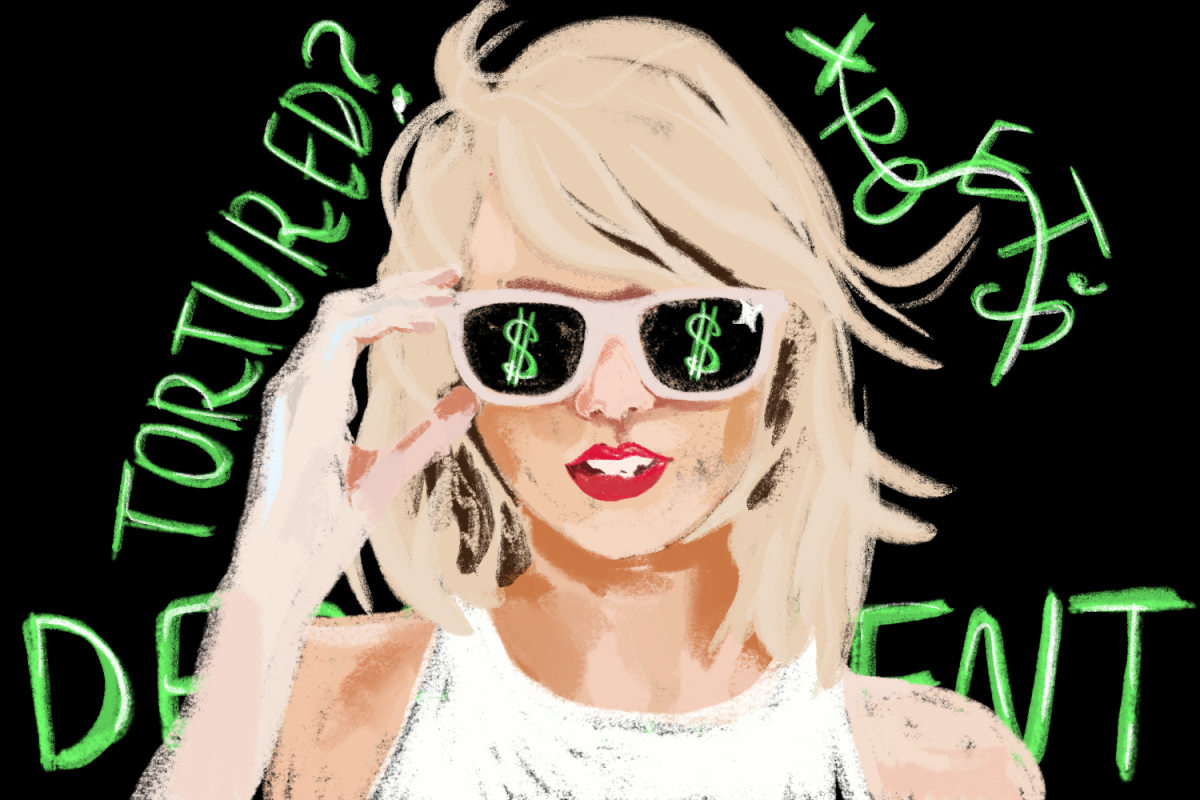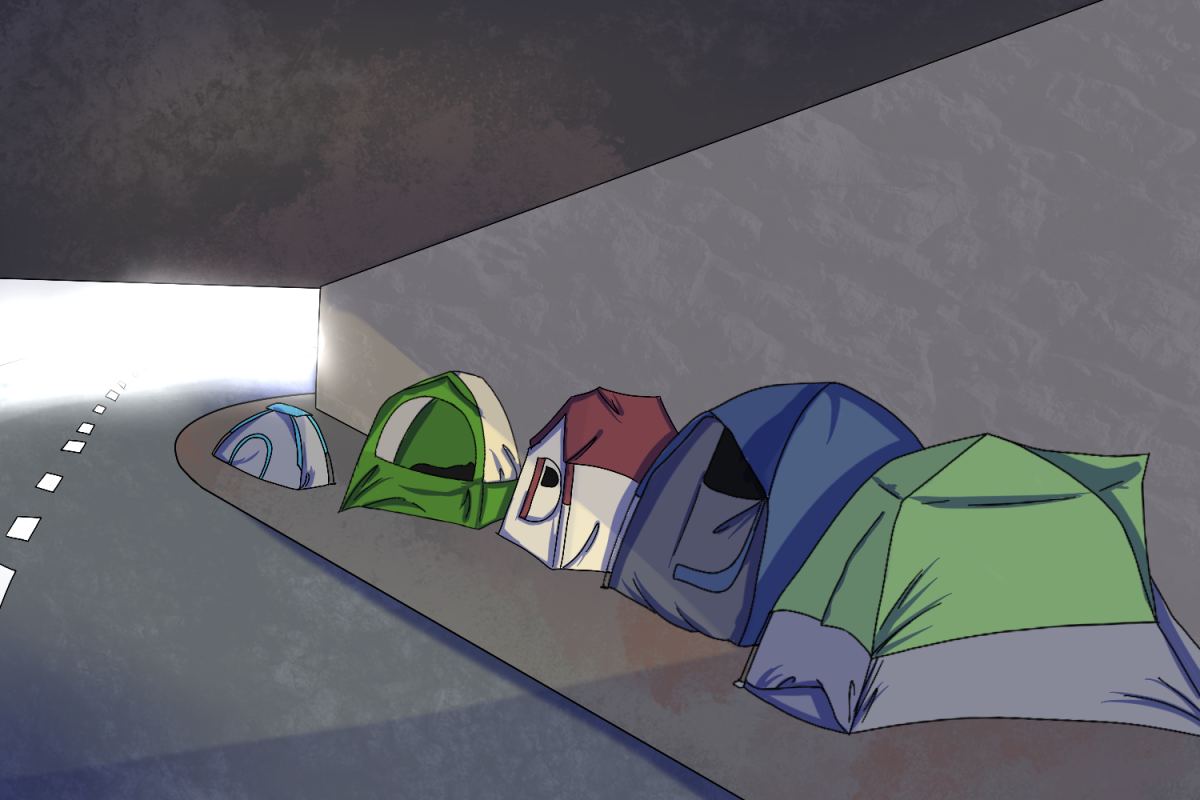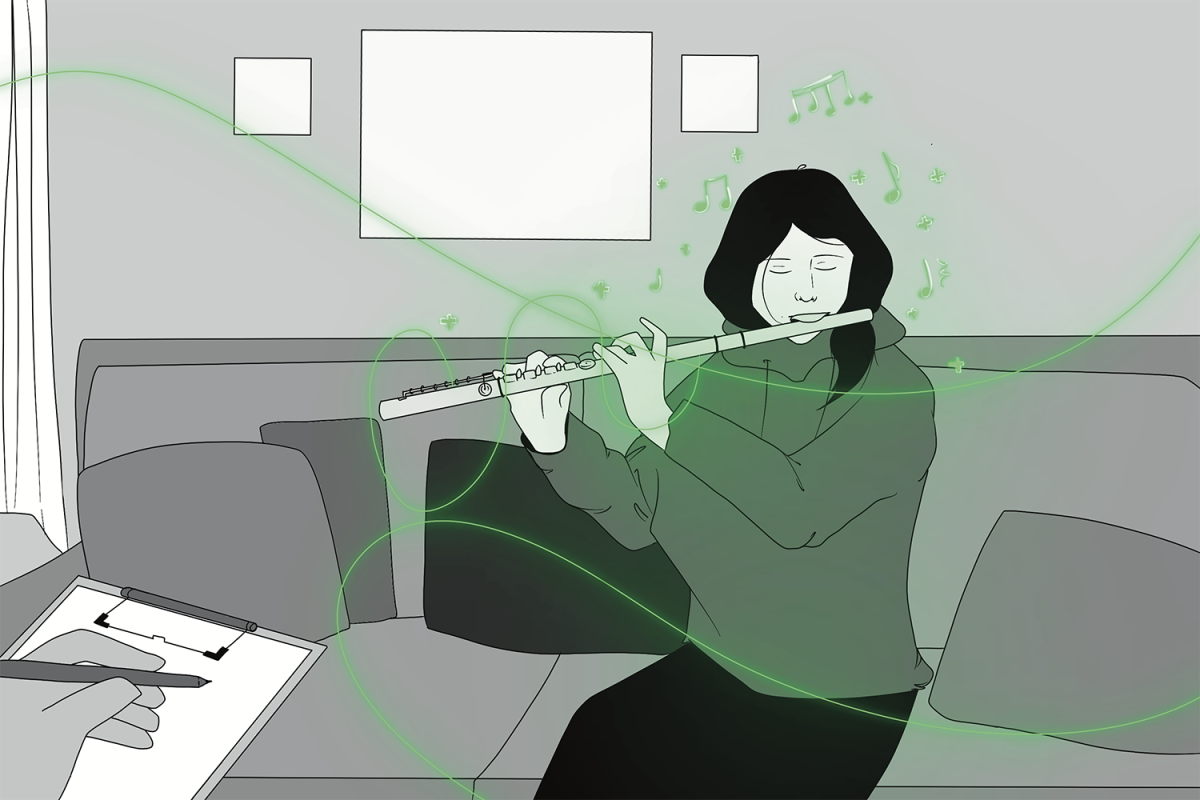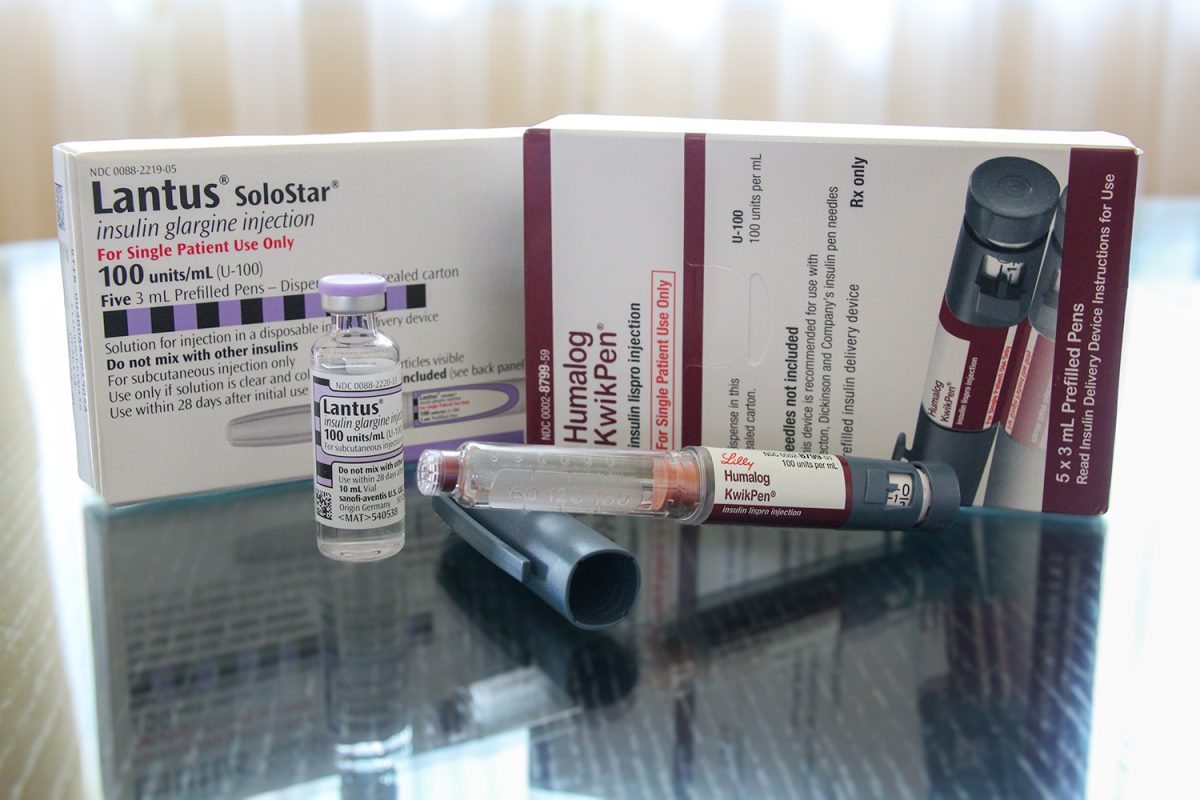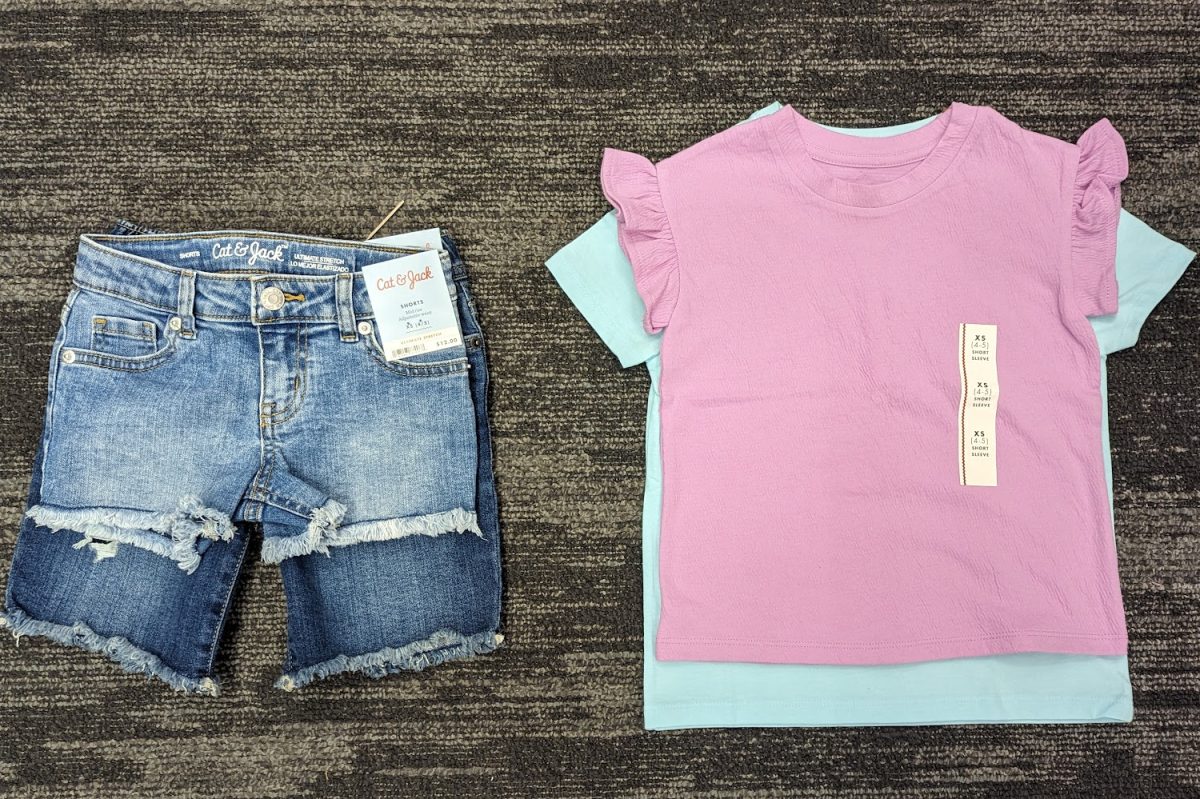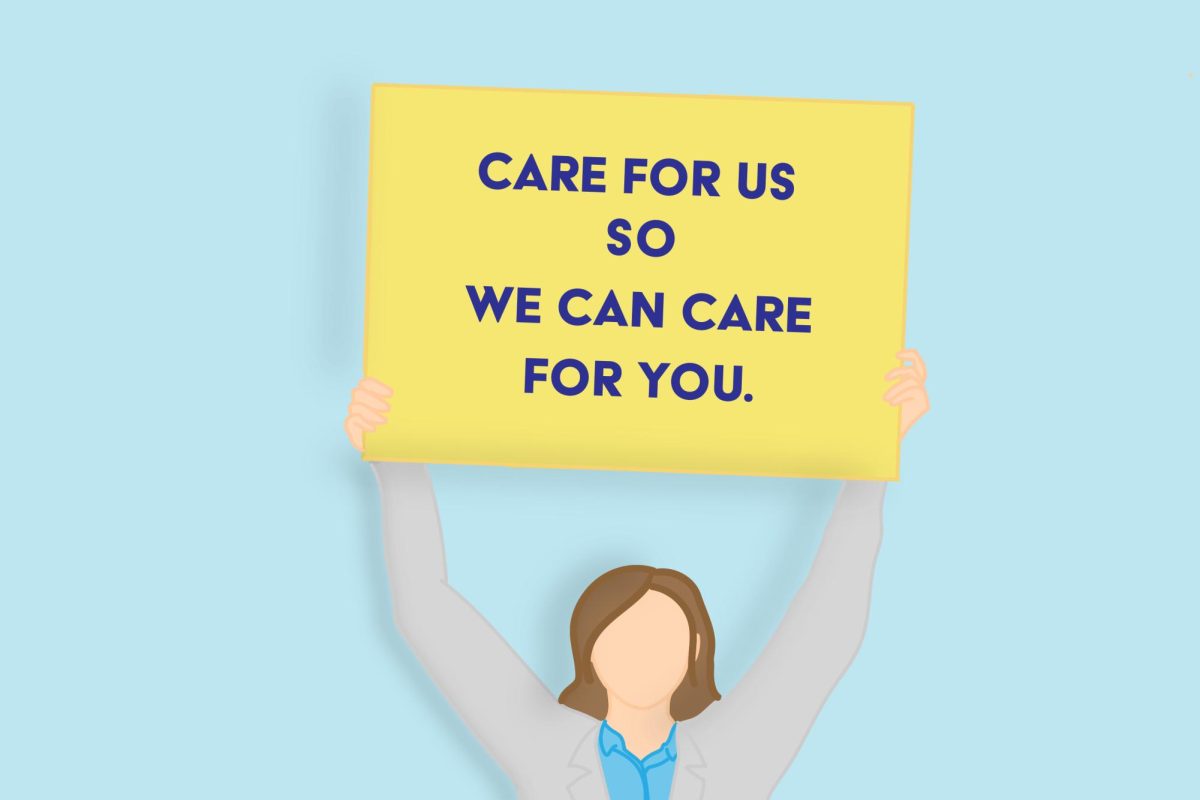Social media is ruining the younger generations and stripping them of their childhood. The same unrealistic social and beauty standards teenagers face have reached Generation Alpha.
As a kid, I remember hoping for the latest crazes like current kids do now. The only difference is that while I was hoping for Rainbow Looms and Shopkins, Gen Alpha is hoping for the newest retinol products and skincare routine.
There are multiple factors for why kids are acting like this, but a catalyst to it all is attributed to social media.
Social media is more prevalent in kids’ lives today. According to the Common Sense Census, 38% of kids ages 8 to 12 use social media as of 2021. Among these kids, most spend their time watching TV and online videos, which are significant sources of unrealistic beauty standards.
The same study also shows that tweens averaged using a little more than two and a half hours of social media. This amount of consumption is not healthy, and it creates opportunities for social media to harm these kids.
Beauty standards on social media are huge problems that affect kids today. Ten-year-olds are asking for Sephora skin care products because they do not want to look old with wrinkles and poor skin. However, at their age, they should not be putting chemicals suited for aged skin on their young faces. For example, a brand that is very popular with tweens is Drunk Elephant. While not all Drunk Elephant products have retinol in them, some do, and this is often what tweens are looking for.
Retinol is a form of vitamin A that prevents wrinkles, acne, sun damage, and dry skin. However, because kids’ skin is young, retinol won’t benefit their skin. Because of kids’ skin traits, it can irritate them.
“I don’t think an 8-year-old should use a retinoid, salicylic acid, or glycolic acid if they don’t have acne. I would tell a 40-year-old to do that because their skin isn’t exfoliating or producing as much collagen, so there’s a reason to boost those biological functions. But in a young person, their skin is exfoliating itself, their fibroblasts — which make collagen — are in overdrive, and their skin is happy and plump, so they don’t need that,” said dermatologist Mona Gohara, MD, in an interview for Allure.
Unfortunately, when social media promotes brands like these that appeal to kids and make them afraid of aging, it targets them into buying the products.
According to Statista, beauty influencers greatly affect younger generations and their purchase of products. The data shows an apparent increase in influence from the older to the newer generations. Up to 74% of Gen Z buyers note influencers as their reason for purchasing a product. While this data does not extend to Gen Alpha, it suggests a high correlation between Gen Alpha’s product purchases and beauty influencers if the trend continues.
Kids’ desire for clear skin and perfect appearance can also be attributed to ad promotion. According to Statistica, beauty advertisers spent around $373 million to promote their products. Additionally, cosmetics and personal care advertising spent over $4 billion on ads.
This is the effect of social media. When kids see influencers or famous people posting pictures with flawless skin and perfect appearances, they often wish to look like them. However, it is unrealistic to have completely clear skin; skin is supposed to have texture. Unfortunately, social media has made it seem like flawless skin is achievable.
The best solution to prevent social media from affecting children is to restrict social media use and to teach kids what is okay and not okay.
Kids should be taught about social media and how it can harm people because of unrealistic standards. If kids learn this, they will be one step closer to healing from the damage of social media.

